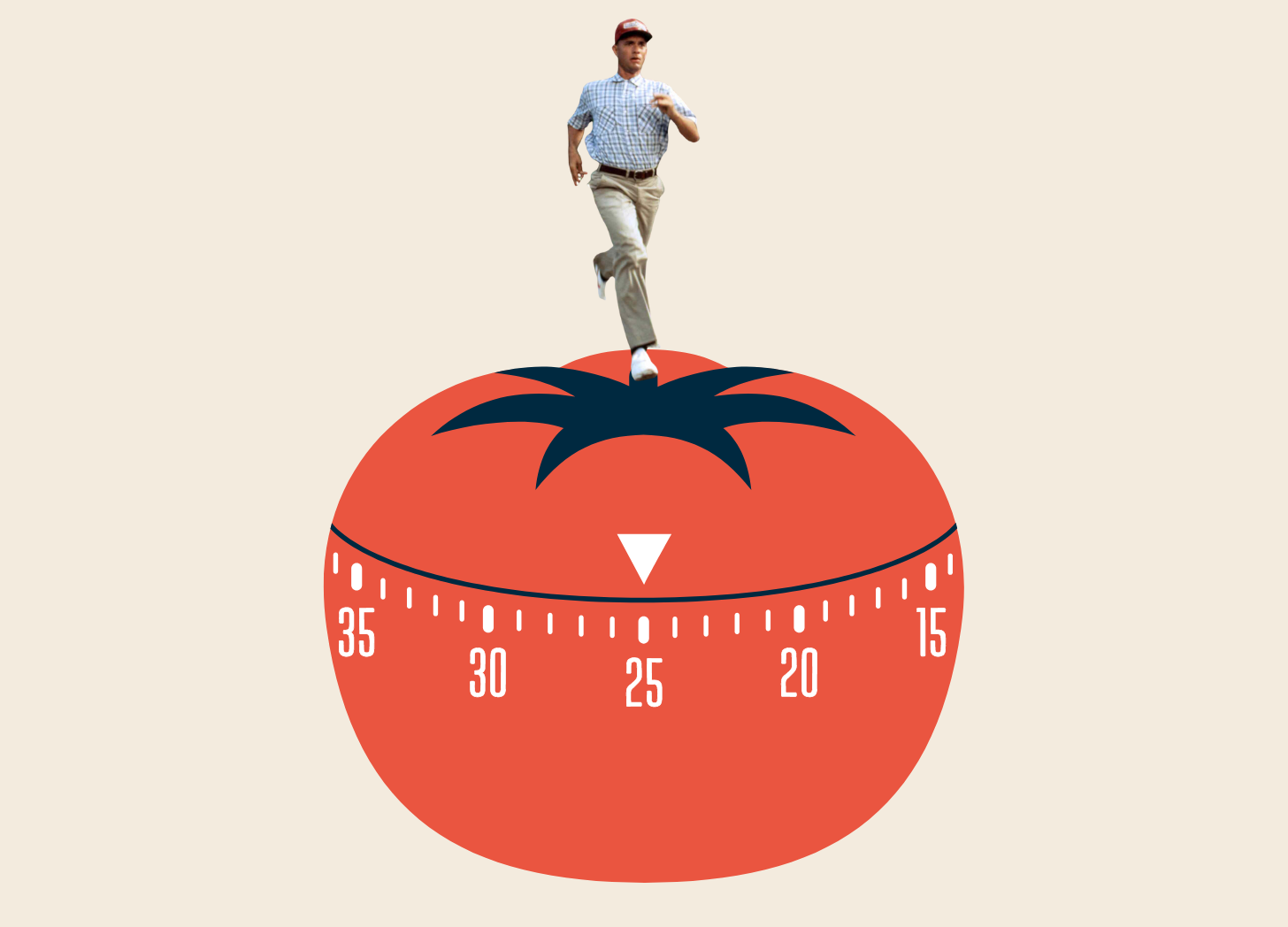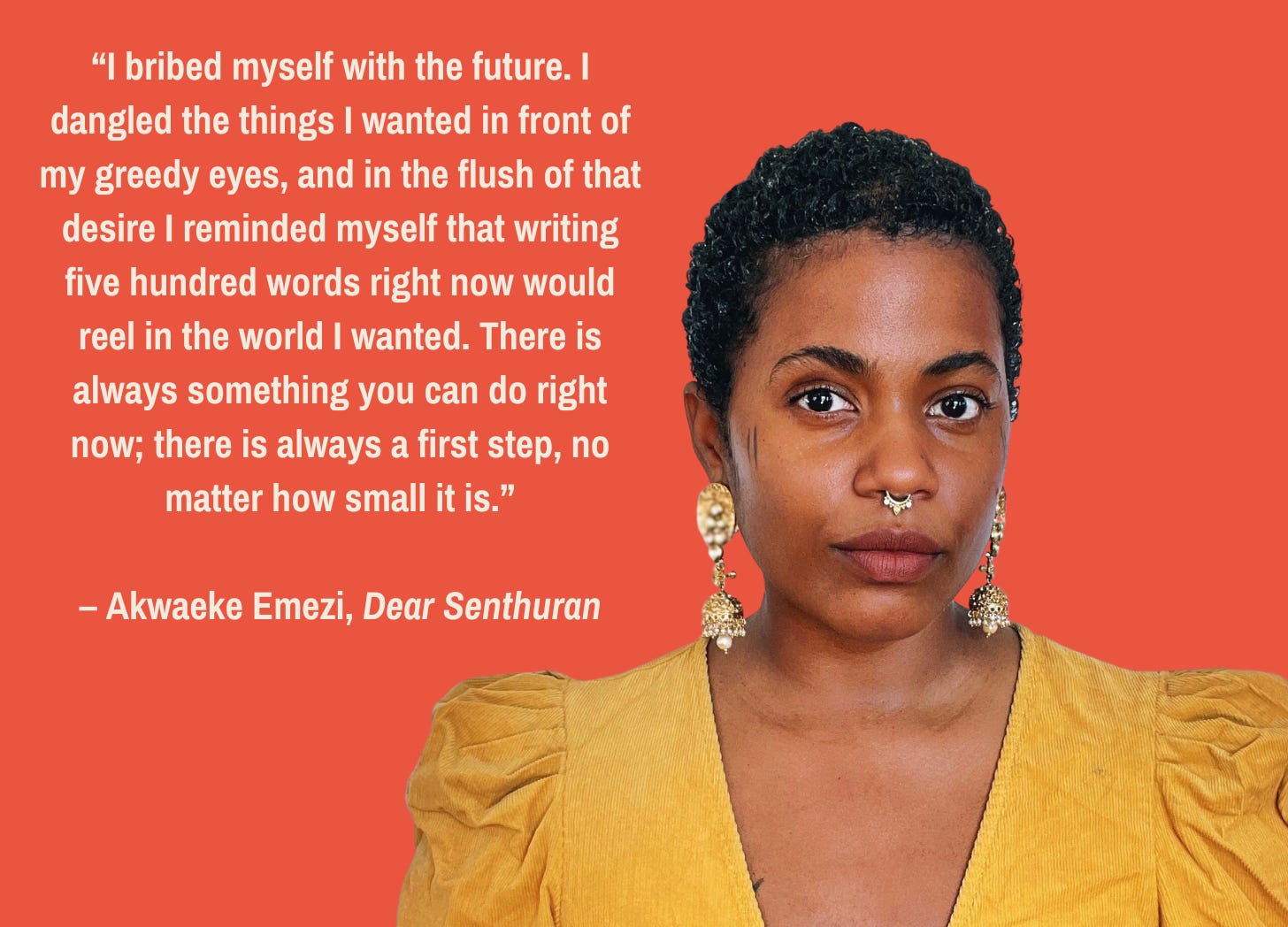No time to write? Here’s a solution.
Why finding time comes with intention - not the scheduling method itself. Plus, a productivity tip from a debut novelist called Tom Hanks and words to inspire us from Akwaeke Emezi.
Having no time makes us miserable.
With four out of five adults feeling that they have too much to do and not enough time to do it, researchers have found that people who feel time-poor experience less joy each day, they laugh less, they’re less healthy, less productive, and more likely to divorce.1
While I don’t have any data on the divorce rates of writers (checks on co-author and husband Chris) many writers we talk to experience time poverty. A questionnaire we ran a while back, found that 89% of writers wanted more time to write.
But the problem isn’t necessarily a lack of time.
The solution?
Okay, there isn’t one. Despite the clickbait heading of this newsletter, I’m not about to offer a magic time-generation productivity hack. We have the time we have - but we can feel differently about it.
I came across this quote recently from psychologist Angus Campbell who said:
“Having a strong sense of control in one’s life is a more dependable predictor of wellbeing than any of the objective conditions of life we have considered.”
This rang true to me. Over the past few weeks, I’ve been doing a daily writing challenge. Life is as busy as ever. However, knowing that I get to write each day, even if only for a few minutes, makes me feel incredibly fulfilled. Rather than feeling at the mercy of life’s demands, my daily challenge puts me in the driving seat of my life and gives me a sense of control. It comes down to being intentional about my writing.
Likewise, when we asked academics about their writing, those who said they had a system, felt happier and more productive.
What it means to be intentional
It doesn’t really matter what method we use to schedule time to write - daily, weekly, in chunks etc - what matters far more is what the act of scheduling gives us.
We can be intentional even when our time is unpredictable. There’s one type of writer we call spontaneous (more on the four approaches writers use in a couple of weeks). Their lives are completely over booked and/or unpredictable. Yet, knowing they can grab those 5, 10 or 20 minute writing opportunities gives them a sense of control. And that brings fulfilment.
However often you write, however much time you have, I have a hunch you’ll feel better about your writing time if you approach it with intention. That means understanding that you will write, knowing what to write, and then having the right tools to hand.
Next week we’ll explore why feeling in control of time can be an illusion and offer an alternative perspective. For now if you’d like to read more about the psychology of control check out this blog Chris wrote: What’s to blame? Who takes the credit? Why every writer needs to understand their locus of control
Keep writing! Bec
PS as always, we’d love to hear your thoughts on time - press the heart, leave a comment or email us.
How does Tom Hanks write?
The nicest movie star in the world is currently promoting his debut novel. He shares his writing routine and how he managed his time using a technique you might have used too.
Can you guess?
Read: Tom Hanks used a popular productivity hack to write his first novel—here’s how it works
Thanks to Mr T.Hanks (well, gratitude is his name after all).
On writing bribes
We love this quote so much we got permission to use it as an epigraph in our book Written. We thoroughly recommend checking out Akwaeke Emezi’s work, especially their memoir Dear Senthuran.
Ashley Whillans in Time Smart: How to Reclaim Your Time and Live a Happier Life, Harvard Business Review Press.









This is very ‘timely’ I’m just listening to A podcast with Oliver Burkeman. I love his concert of finitude and prioritising those tasks and projects that are most important to us. That’s why I love London Writers Salon and the hour each morning I get to spend with my writing.
I agree 💯 Since starting the daily writing challenge (day 1,949 today!), I commit to writing for a minimum of 5-10 mins a day but more if I can. The flexible approach makes me feel more in control and able -- less like a failure. Its previously been famine of feast for me, so being able to find this happy middle place makes all the difference. Great post, Bec.